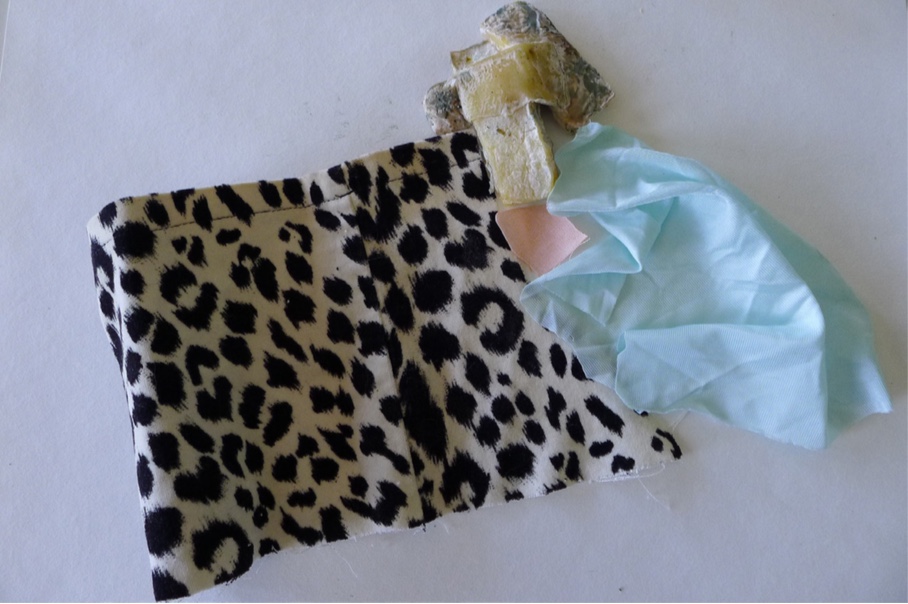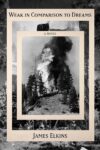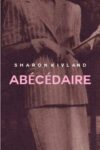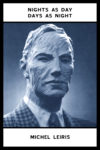This essay first appeared in the Full Stop Quarterly, Issue #8. To help us continue to pay our writers, please consider subscribing.
One thousand band stickers and posters painted every surface except for the dirty windows that studded each studio. We saw who was on the air and what live band was playing. When the thick silver door to the outside was locked after hours, we used a special code. Like all baby DJs, my first radio show was from 3 to 6 am. The graveyard got-to-pump-yourself-up-to-stay-up three-hour-slot unfolds the folded music of sleep and spreads out over unknowable territory. I played “It’s a Fire” by Portishead at 4:30 and “Teardrop” by Massive Attack at 4:33. Late-night radio felt sexy, druggy, a fog without sex or drugs (since I was mostly single and sober), where the minutes dragged and the clock turned backwards. I slept on Josh Landau’s couch through the early afternoon.
It was the spring of my first year of college. After I moved home for the summer, I drove from Berkley, MI to Ann Arbor so that I could keep my slot. WCBN-FM Ann Arbor, the University of Michigan’s student-run radio station, was the beginning of the kind of listening I’ve come to identify with the tenderness junction, a phrase I take from an album by the Fugs, those soft weird hippies who make songs out of Blake poems. I don’t remember who covered my show when I went to Havenwyck in July.
The psychiatrist called them obsessive suicidal thoughts. He diagnosed me with OCD and, when I brought up the possibility of seeing a psycho-analyst, he told me that I didn’t really want psychoanalysis because it would open a can of worms. The “can” he referred to was my life, which had already led me to the psych ward. I had just turned nineteen. A violence that was unknown to me had taken me hostage. I felt destroyed by life because suddenly—it felt sudden even though it wasn’t—life wanted to destroy me.
The previous year I’d broken up with the love of my life because I was going to college and he wasn’t and I was getting sober and he wasn’t. And my biggest crush of freshman year did not reciprocate. (Loss and rejection of romantic love are huge precipitants for suicidal fantasy.) I thought of ways to die that didn’t make sense. I was desperate for interference.
I also knew the psychiatrist was wrong. I wanted analysis. I was most afraid of being haunted by these so-called worms for the rest of my life, which seemed like it was going to be short since I felt so out of control. I also had a hunch that it wasn’t OCD that’d caused these thoughts and medication wasn’t going to get rid of them. So, in the fall, back at school, I started seeing a psychoanalyst. I saw her four days a week for thirteen years. Her name was Jane.
The pleasure of voice—listening and speaking, the music of verbal and non-verbal expression—resonates between these disparate forms of discovery and communication: freeform radio and psychoanalysis. A freeform radio philosophy of listening, compiling, and composing invites wild and obscure forms of attention. Psychoanalysis is also about listening and the lesser practiced forms of attention. While there are countless important differences between the listening that happens in psychoanalytic therapy and the listening that transpires over the airwaves between DJs and radio listeners, I connect the magic of the freeform radio DJ, like that of Clay Pigeon on WFMU’s out-of-this-world in-this-world morning show Wake n Bake, to the magic—hard-won practice, so much work happening behind-the-scenes—of a good analyst.
In The Life and Death of Psychoanalysis, Jamieson Webster describes how she understands the function of listening between the analyst and the patient.
We are in the business of a talking cure. One must believe that there is at least one who can hear. Transference love is this one who can hear consolidated in the figure of the analyst. It is one of the only reasons that patients continue—something must be heard, they believe in this listening ear.
When something unbearable emerges in analysis—and the reason a patient is a patient is because there is something unbearable about her life—the analyst offers the possibility of an interruption, a break, a skip in the all-too-familiar record of one’s life, a piercing of the vision of time as something entirely self-same. The analyst offers something unexpected that the patient did not know could be there: difference. Not necessarily a visceral, cutting difference every time, which we tend to dream of as if violence were the best dream, but difference as the interruption through love by way of a listening ear.
Last night a DJ saved my life. Last night a DJ saved my life from a broken heart. Last night a DJ saved my life. Last night a DJ saved my life with a song. I often felt Jane had saved my life every single one of those days of those thirteen years. Jane says, “I’m done with Sergio. He treats me like a ragdoll.” As I exited our session and entered the elevator I sang Jane’s Addiction. Jane’s office was around the corner from the radio station.
When I say that I love you, you know you like it, you know you like it a lot, you know you like it, but I can’t say it anymore. Sara Grosky sang close to the ground and banged on her bass. Her voice grew in the soil and burst in her throat. “polish sex” by crünt was released in 2001 on the first we’re twins records compilation. It was the beginning of a twenty-first century anticipated by Prince, a millennium wrecked before it commenced—2 thousand-0-0 party over, oops!—similar and different from the previous century’s fin de siecle forward-backward glance. We want a future but we can’t say it anymore. Baby-3-4!
I met Sara a.k.a. Saramin at WCBN, where she currently hosts “Beat the Bezoar.” She wasn’t a student anymore, which made her cool. We’d had the same poetry teacher, Ken Mikolowski (who was also the poetry teacher of Ken Freedman, General Manager of WFMU, who also got his start at WCBN!) Sara lived in Ypsilanti and I’d never met anyone who lived there. She knew about Kathy Acker. (She might have told me about Acker!) And the neologism that made her DJ name was Sara plus Theremin, an instrument that the CBN library introduced me to by way of its Clara Rockmore album. It was at CBN that I created some of the most significant relationships of my early adult life. We fashioned a permission to make whatever we wanted, a permission that mistakenly seems reserved for the young.
During fundraisers, all the women DJs got together and hosted “All Femme Freakouts” where we couldn’t help from getting the mics too hot and distorting over the air because we were freaking out so hard about being together, playing what we wanted without remorse. I did radio with some of my best girlfriends. Beca and I hosted “Radio Regazza” after the radio program in the feminist dystopian film Born in Flames. Menghsin, now a DJ at KALX, and I shared an apartment two blocks from the radio station. She crafted scholarly mix CDs decorated with ornate handwriting, and we made each other mixtapes that age well. I met my bandmate, Jason Voss, current host of Interplanetary Music at CBN, and we started Melting Moments, fulfilling a poet’s dream of being in a rock band. We wrote songs that were both spoofs of and sincere dedications to rock n’ roll. We were a local band with a dedicated following.
“You are listening to WCBN-FM Ann Arbor, 88.3, the extreme left of your dial.” CBNers love their place in the airwaves. It is a certain kind of sweetness, the fantasy of a knob in our hand, turning it left to get to where we want to be. A DJ produces an experience of a shared world, where what and how we hear matters, even when we are not in the same room, city, time zone, or country. A DJ can make sitting alone in a four-cornered room staring at candles feel like there are windows and there is an outside and it’s coming in through the speakers.
In psychoanalysis, a speaker (a patient) becomes a voice with a body like the analyst is a DJ acting as a vehicle for the music of patients. An analyst’s presence—a mostly silent, mostly invisible listener—is both fader and audience: the mechanism and the ear.
While there are not conversations in the way we generally think of them in psychoanalytic therapy, there is an ongoing exchange where memory develops that suggests a conversation elsewhere, in other forms between other people, and amongst our unconsciousness. Learning how to listen— and how to be listened to—and being available to communicating what you do not understand yields intimacy and desirable connections between people who didn’t exist before. An unexpected form for being emerges.
During my training at CBN—stage 2 training—I observed Arwulf Arwulf’s Thursday night program, “Face the Music.” It was May 2000, the anniversary of police shooting and killing student protesters at Kent State. Arwulf had records playing on all three turntables. The sounds of artillery blasted from sound effects records and woven through the constant eruptions was Shostakovitch, my first introduction to weird classical music. Arwulf’s performance was a magnificent imitation of the sound and feeling of chaos. As the child of Marxist-Leninist-Trotskyists, I felt both at home and in a place I’d never been before.
Arwulf’s voice was sedate compared to his collages. He moved quietly, wore a beret, and belonged to an Ann Arbor it was easy to feel nostalgic for. He had gone to Community, the public high school for weirdos. He had a place and this whole place was his. He made me feel like it could be mine, too. And we had an audience. People were actually listening. My parents’ political work rarely had the audience they wanted. Arwulf modeled how to listen, how to be both audience and DJ.
If you are going to take the risk and play three records at once, you have to be available to not knowing what you’re doing, what you’re hearing, and what it all means.
As a freeform radio DJ, I have loved playing something dense and aggressive after something soft and spacious; producing an abrupt transition or a pause between songs, then a rush and a push. I have known what’s coming next and I am ready to shock the listener into a new state. I am at the board, watching the clock, ready to slide the faders, and push the button. This is more than delightful; it can be punishing.
It is important to think through how we might want to punish ourselves and each other, how these two—ourselves and each other—are especially difficult to discern in the midst of nearly unsurvivable pain and the undertandable need to do something. It can be cruel to throw a listener from one mood to another without a sense of care or continuity. Sometimes we want to hurt the people who are listening. Sometimes we hurt ourselves by listening to people who have stopped listening to us. Ways to intervene are hard to come by, especially ones that do not exact revenge.
I despise revenge. It ignores the future. A future in which the worst of us get what we deserve is a future in which we have stopped listening because progress has been replaced with retribution.
Even with the reach of the internet and the streaming of live radio broadcasts, the local experience of listening carries a je-ne-sais-quois. Jane was always nearby. Ann Arbor is small, but I was close to her on purpose. In Manhattan, I often imagine renting a hotel room near my analyst, Dr. K, in Midtown. I see him at a reduced rate and I search for a reduced rate hotel room as if these things could go hand-in-hand and then I’d just be there already, on the elevator, pushing the button, riding to the eighth floor.
Last summer, I started hosting the “The Tenderness Junction” on WFMU in Jersey City. I had not done radio since 2010, the year I left Ann Arbor to move to Madison for graduate school. As soon as I hosted my first show on FMU, I told Dr. K, “I love radio so much. I can’t believe how much it feels like me, like I come alive on the radio in ways that I never do anywhere else, except for being a poet, and maybe except for here.” You are here. Arwulf says these words in a pre-recorded station ID. Radio is an opportunity to usher in the present, make it alive to us.
I love radio and psychoanalysis because I hear voices, because there is an audience, because I am allowed to thrive at the crossroads of voice and audience. I speak through the songs, the songs speak back, the listeners are alive, spread out, invisible but discernible, space is bound by the dial, the stream; it goes many places but it does not go everywhere; there is an archive, a record, life. I live in the music library in ways I always dreamed I would. This is the crossroads of the analog of radio and psychoanalysis: the call for listeners.
Some of us need to be listened to because no one has listened to us yet and there is a direct link between listening and life, perceivable in its absence. What we cannot say and what we cannot hear matter. If we consent to the maintenance of the secrets of our suffering and our desire, we hide from ourselves and one another.
The tenderness junction is a space made active by an audience whose desire has not been foreclosed by defenses against surprising forms of connection and intimacy. The tenderness junction is the space between my mouth, the mic, the speakers, and your ears, and it is the space between Dr. K’s couch and the chair he always sits in beside me.
I feel responsible to the creation of a now that we are a part of by way of listening, the experience of being heard, having a soundscape unfold around you that invites listening as a scene, something people are doing together in the service of learning how to stay together.
Anna Vitale is the author of Detroit Detroit, Different Worlds, and several chapbooks including Unknown Pleasures. Recent poems and prose have appeared in Alienocene, BathHouse, and Jacket2. She hosts the Tenderness Junction on WFMU in Jersey City and teaches in New York. Her essay about David Wojnarowicz’s Rimbaud series, Our Rimbaud Mask, will be published in the fall by Ugly Duckling Presse.
This post may contain affiliate links.








